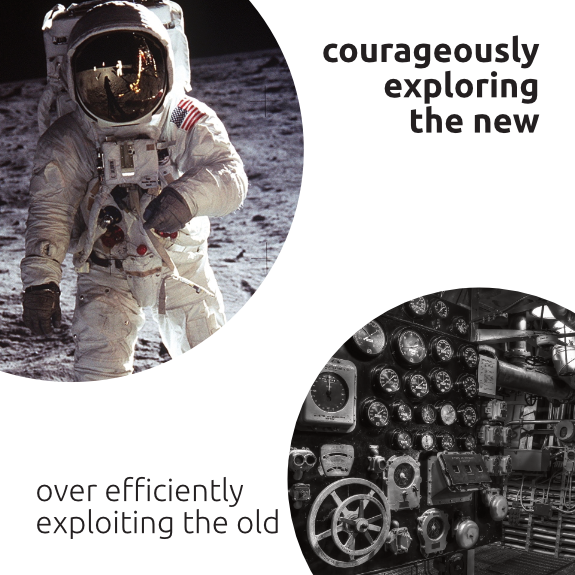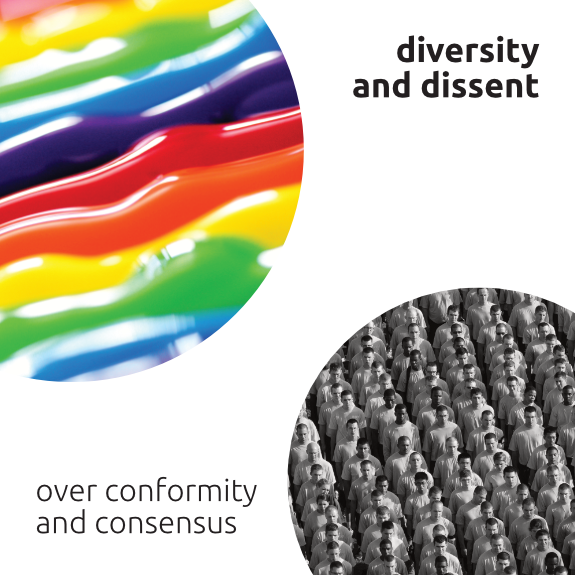The balance between efficiently exploiting existing business models and courageously exploring new opportunities for the day after tomorrow is at no time easy. The first digital camera was invented at Kodak in 1975, but it didn’t stand a chance against the then dominant film business. And even the well-known Xerox Palo Alto Resarch Center (PARC), founded in 1970 in the face of the latent threat to the successful photocopier business due to expiring patent protection for Xerox xerography, has a remarkable list of innovations from laser printers to programming languages and graphical user interfaces. The only flaw in this success story: With the exception of the laser printer, which was successfully marketed by Xerox in the form of the laser copier, Xerox has not managed to take advantage of any of these great inventions.

Thus, if the balance between the all-dominant today’s success model and the opportunities for the day after tomorrow is apparently difficult to find even in good times, companies fall even more into this imbalance in times of crisis. Understandably so, because those who do not survive today no longer need to worry about the day after tomorrow. However, if the focus is too much on economic survival here and now, it becomes tunnel vision and thus endangers the long-term existence.
May we never confuse honest dissent with disloyal subversion.
Dwight D. Eisenhower
The ramp-up to old strength after the crisis must be fast and targeted. Diversity and dissent are just disturbing. The crisis promotes conformity and consensus and, with this intellectual monoculture, lays the foundation for the next crisis. “Think different” was yesterday. Organizational rebels and court jesters are therefore not in demand, but all the more important because in this phase, with constructive irritation, they broaden the view again and direct it from today to the day after tomorrow.

During the crisis the course is set for the day after tomorrow. Despite all the unity and determination, diversity and dissent is not a mistake in this phase. Quite the opposite. In his book “The Effective Executive” (Amazon Affiliate-Link), Peter F. Drucker explicitly advises not to make important decisions without prior dissent. He mentions Alfred P. Sloan as a prime example of this, who allegedly said at a meeting of his top management: “Gentlemen, I take it we are all in complete agreement on the decision here.” Everyone around the table nodded assent. “Then,” continued Mr. Sloan, “I propose we postpone further discussion of this matter until our next meeting to give ourselves time to develop disagreement and perhaps gain some understanding of what the decision is all about.”





